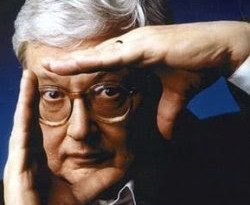 Recently Roger Ebert provoked quite a reaction with his trashing of Michael Bay’s multi-million dollar sequel, Transformers: Revenge of the Fallen. Many people who enjoyed the film reacted angrily – surely if they liked it, then it was good for them? But Ebert had the audacity not just to personally dislike the film, but insisted that it was objectively bad. Responding to the complaints about his review, he said:
Recently Roger Ebert provoked quite a reaction with his trashing of Michael Bay’s multi-million dollar sequel, Transformers: Revenge of the Fallen. Many people who enjoyed the film reacted angrily – surely if they liked it, then it was good for them? But Ebert had the audacity not just to personally dislike the film, but insisted that it was objectively bad. Responding to the complaints about his review, he said:
So let’s focus on those who seriously believe “Transformers” is one of the year’s best films. Are these people wrong? Yes. They are wrong. I am fond of the story I tell about Gene Siskel. When a so-called film critic defended a questionable review by saying, “after all, it’s opinion,” Gene told him: “There is a point when a personal opinion shades off into an error of fact. When you say ‘The Valachi Papers’ is a better film than ‘The Godfather,’ you are wrong.” Quite true. We should respect differing opinions up to certain point, and then it’s time for the wise to blow the whistle. Sir, not only do I differ with what you say, but I would certainly not fight to the death for your right to say it. Not me. You have to pick your fights.
By “art”, I don’t mean just paintings and symphonies and the like, but in a broad sense to include pop songs and novels and television and film an, any kind of creative work. It often comes up on Doctor Who forums – someone says that they thought that such-and-such an episode was actually bad and someone else says “well that’s just your personal opinion”.
 Curiously, people usually both dismiss opposing arguments as “just your opinion” and give reasons why they think they’re wrong. Spot the inconsistency! Most discussions of art actually presuppose such an objective standard, but people often don’t realise this because they confuse our opinions being subjective with the reality being subjective. Our opinions are subjective, but they are subjective opinions about objective reality.
Curiously, people usually both dismiss opposing arguments as “just your opinion” and give reasons why they think they’re wrong. Spot the inconsistency! Most discussions of art actually presuppose such an objective standard, but people often don’t realise this because they confuse our opinions being subjective with the reality being subjective. Our opinions are subjective, but they are subjective opinions about objective reality.
The problem with the view that there is no objective good, no standard of actual beauty and truth that art can be measured against, is that it means that there is no way art can expand or improve us.
If there’s an objective good, then there’s a difference between what I do enjoy and what I should enjoy, which means I can grow in my appreciation of what is truly good. Art has the power to reorder my thinking and my tastes, not just to gratify the desires I already had, but to give me a fresh delight in something new.
If there’s no objective standard of good, then there is absolutely no sense in which you can say that someone who enjoys Transformers: Revenge as the Fallen as the pinnacle of Western art but despises Shakespeare or Dickens or Lord of the Rings is missing out – because it’s all subjective, right? All that matters is enjoyment.
Reducing the quality of something merely to “enjoyment” dehumanises us. “Enjoyment” or “liking” is just an instinctive reaction. It’s no more meaningful than a plant “liking” water, or a sheep “liking” grass.
But if goodness, truth and beauty are realities outside of ourselves that we can engage with, that are bigger than us and can expand us, then we are doing something that transcends just the material and the animal. We become rational beings, even spiritual in a broad sense, through our engagement with art and entertainment.
There is an approximate correlation between popularity and quality. If something is popular then that usually (but not necessarily!) means it’s doing something right. People generally like things that are good, but being popular doesn’t make something good – it’s a symptom, not a cause.
Also, being good doesn’t always make something popular, and other things rather than quality, such as hype and clever marketing, or escapism or titillation, can make something popular. People can like stuff that’s bad as well as stuff that’s good, and dislike stuff that’s good as well as stuff that’s bad. When we like what is good and dislike what is bad, we have “good taste”.
People disagree on what exactly makes a piece of art or culture good or bad, but most cultures have traditionally recognised goodness, beauty and truth as the triad of qualities to which art should aspire. These can be expressed in many different ways – I’d argue that, say, the Harry Potter books, The Dark Knight film and the play Hamlet all reflect something of these qualities, but in very different ways.
Only an objective standard allows real discussion. If someone likes something, there’s nothing you can really say to that, except “Me too” or “I didn’t feel the same”. You’re just comparing prejudices. But if someone says “This is actually good or actually bad, because of reasons X, Y and Z”, you can agree or disagree, and discuss the plot or structure or style or theme or whatever, and actually have a meaningful discussion. Bring it on!



